- Your cart is empty
- Continue Shopping
Solvin Cold Drop – Your Child’s Medicine at a Glance
Solvin Cold Drop is a combination medicine for children, commonly prescribed to treat symptoms of the common cold, such as:
Runny or blocked nose
Sneezing
Watery eyes
Cough
Sore throat
Fever
Body ache
How to Give Solvin Cold Drop
Give the medicine by mouth, with or without food. If your child experiences stomach upset, prefer giving it with food.
Follow the dose, timing, and duration prescribed by your doctor.
Administer at a fixed time daily to make it part of your child’s routine.
If your child vomits within 30 minutes of taking the dose, repeat it once only, unless it’s already time for the next dose.
Continue the full course as prescribed, even if your child starts feeling better, to prevent worsening of symptoms.
Minor Side Effects
Most side effects are temporary and may subside as your child’s body adapts:
Vomiting
Diarrhea
Nausea
Dizziness
Rash
Headache
⚠️ If side effects persist or worsen, consult your doctor immediately.
Precautions Before Giving Solvin Cold Drop
Inform your child’s doctor about:
Any allergies
Heart problems, blood disorders, or birth defects
Lung or airway conditions
Skin, liver, or kidney issues
Any ongoing medications
This ensures safe dosing and overall treatment planning.
Uses of Solvin Cold Drop in Children
Treatment of common cold
Relieves symptoms such as blocked/runny nose, watery eyes, sneezing, and congestion
Loosens thick mucus, making it easier to cough and breathe
Shrinks blood vessels in the nose for rapid, long-lasting relief
How Solvin Cold Drop Works
Solvin Cold Drop is a combination of three medicines:
Chlorpheniramine – An antihistamine that relieves allergy symptoms like runny nose, sneezing, and watery eyes.
Paracetamol – A pain reliever and fever reducer. It blocks chemical messengers in the brain responsible for pain and fever.
Phenylephrine – A nasal decongestant that narrows blood vessels, relieving stuffiness and congestion.
Common Side Effects
Most children tolerate Solvin Cold Drop well. If side effects occur, they usually subside:
Diarrhea
Rash
Headache
Insomnia
Dizziness
Nausea
Tachycardia (fast heartbeat)
Palpitations
Anxiety, restlessness, or tremors
Weakness or hallucinations
Consult your doctor if any side effects persist or bother your child.
Safety Advice
Kidney disease: Use with caution; dose adjustment may be needed.
Liver disease: Use with caution; dose adjustment may be needed.
Follow the doctor’s instructions carefully for safe and effective use.




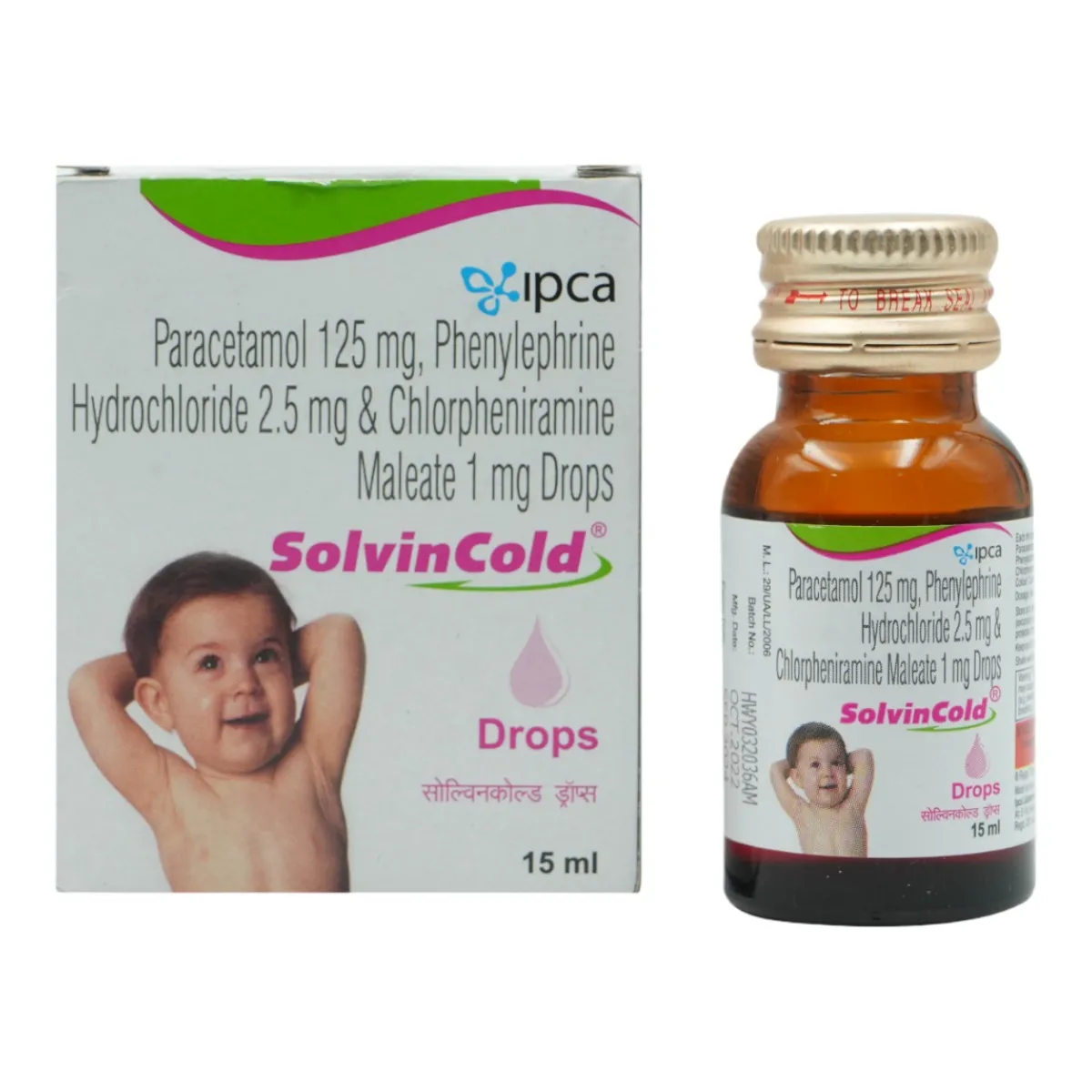
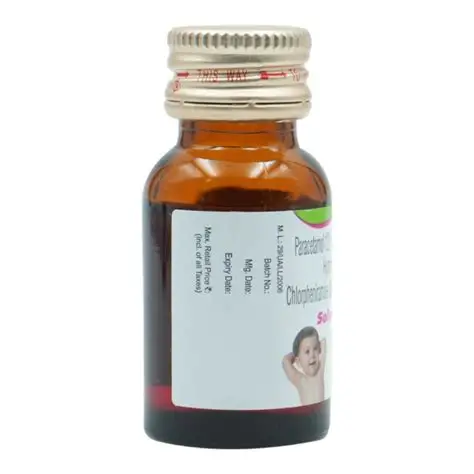
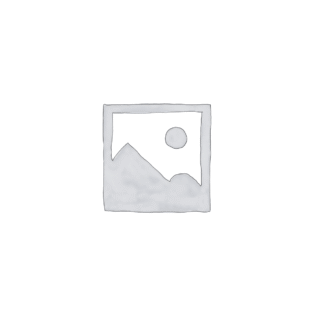
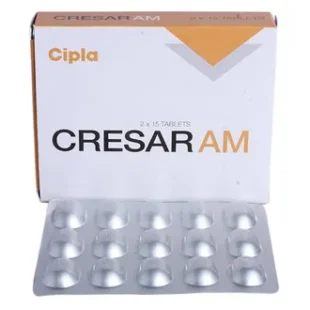
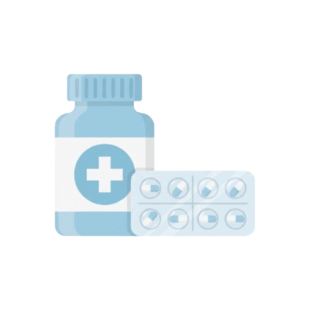
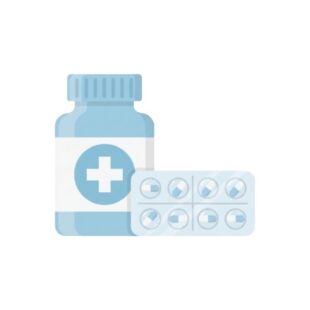
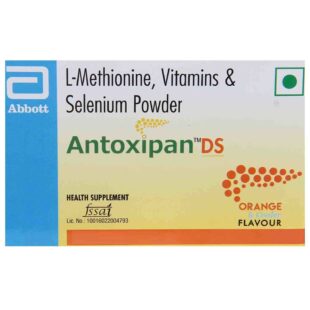
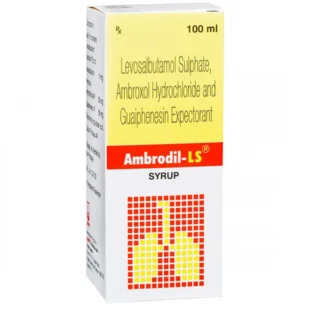
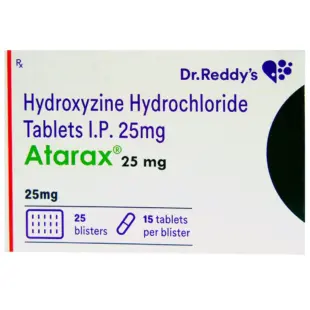
Reviews
There are no reviews yet.